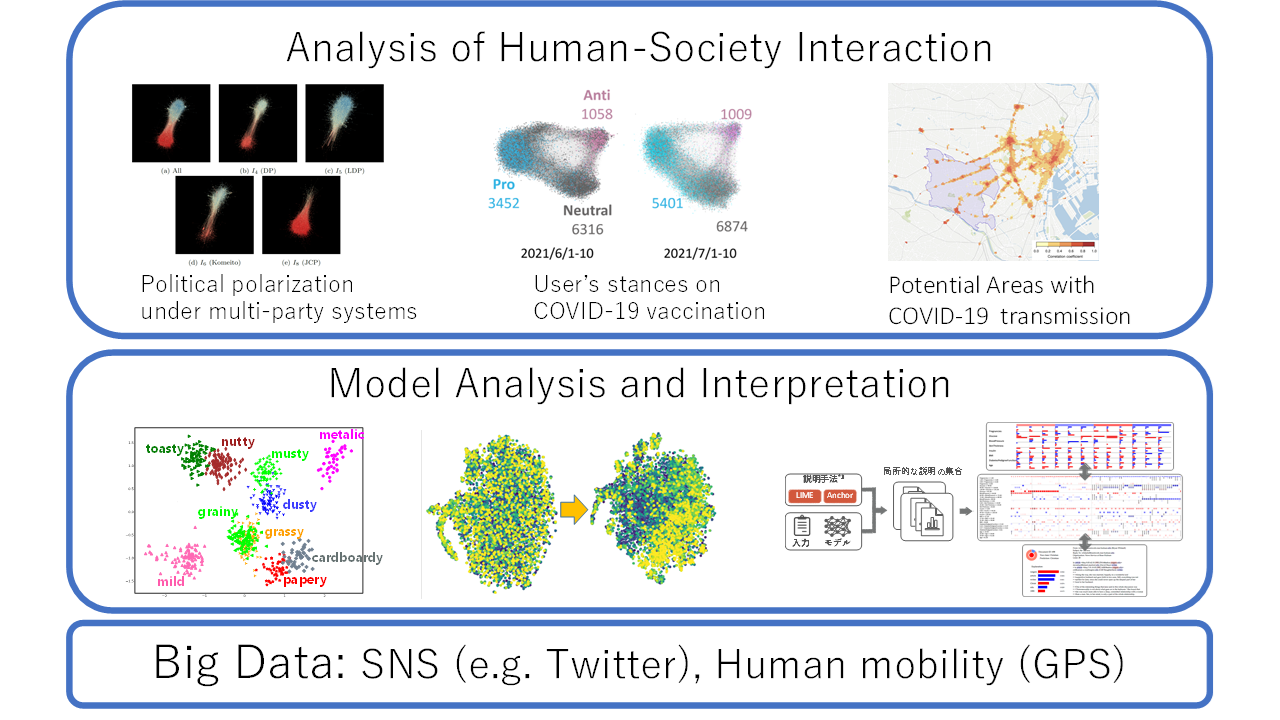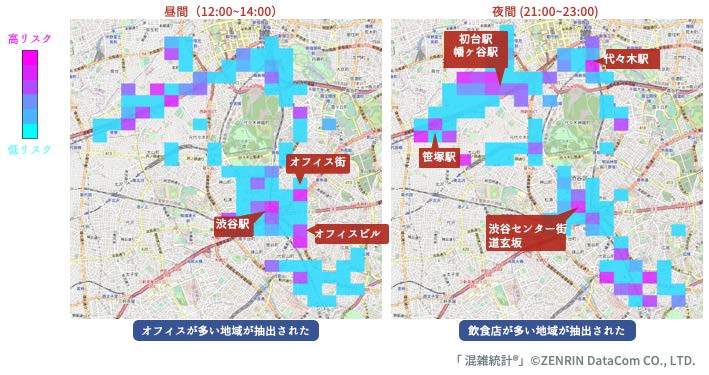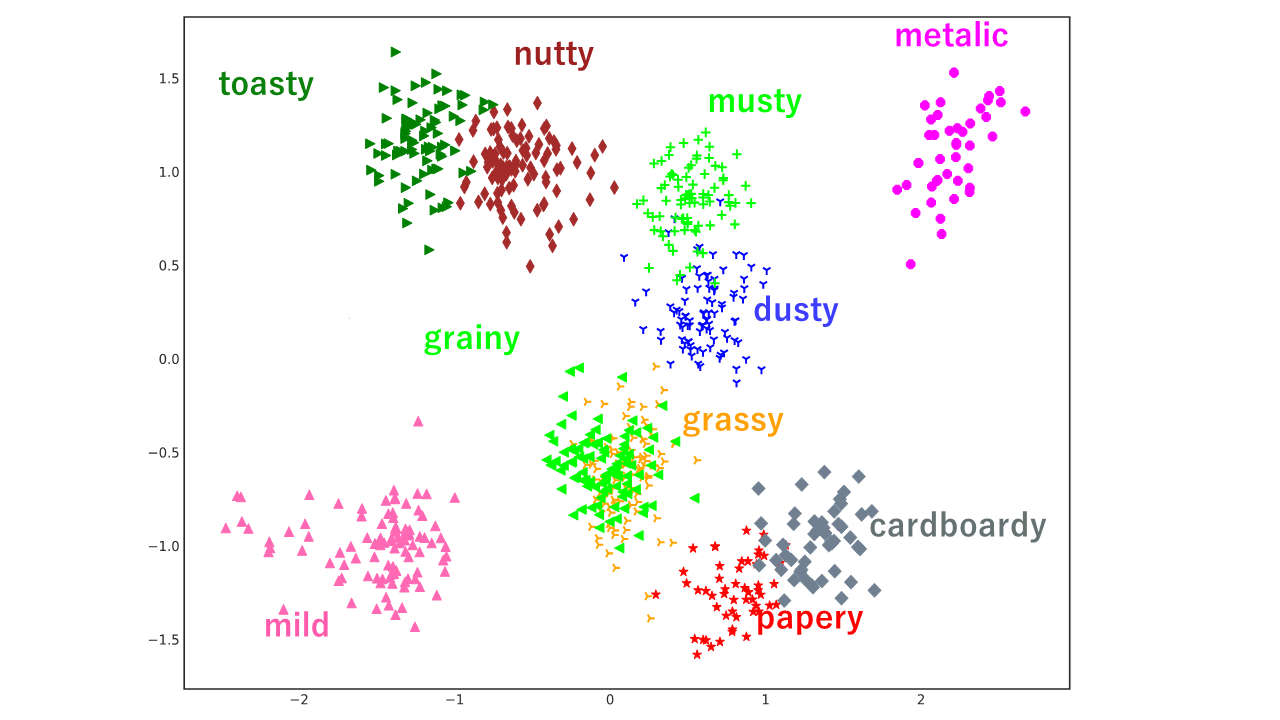Toyoda Group
The emergence of a large and comprehensive data on cities and SNSs allows people to expand their horizon. Our goal is to develop methods for decision making based on information analysis and visualization of the large-scale data, and fundamental technologies for personalized information presentation. We develop information analysis and visualization methods through several analysis tasks for understanding human-society interaction, that is people’s action and behavior on physical and cyber society observed from the large data on cities and SNSs. As the basis for personalized information presentation, we develop technologies to understand and interpret analysis models (especially natural language processing models based on deep neural network).
For human-society interaction analysis, we have continuously archived large scale mobility data (accumulated GPS data) and SNS data (Twitter data). In response to the spread of COVID-19 that began after the project started, we selected analysis tasks that would contribute to countermeasures. We conducted analysis and visualization tasks related to people’s activities and behavior, such as the correlation between city congestion and infection risk, and changes in their stance toward vaccination. Toward the personalized information presentation, we developed fundamental techniques for interpret and explain natural language processing (NLP) models. Especially, we analyzed variations in the meanings of words used by individuals, and linguistic phenomena captured by each neuron in a deep neural network model for NLP.

Projects
-
Exploratory Model Analysis Using Data-Driven Neuron Representations

Probing classifiers have been extensively used to inspect whether a model component captures specific linguistic phenomena. This top-down approach is, however, costly when we have no probable hypothesis on the association between the target model component and phenomena. In this study, aiming to provide a flexible, exploratory analysis of a neural model at various levels…
-
Analyzing Political Polarization on Microblogs with Social Network Segregation and Users’ Political Leanings

Political polarization on microblogs has been studied in terms of the user interaction between partisans and across partisan lines, such as echo chamber effects and the cross-ideological information diffusion.Although previous studies imply that politically neutral users might mediate the discussions, it has not been examined how the overall cross-ideological interactions are taken place by politically…
-
Diachronic Analysis of Users’ Stances on COVID-19 Vaccination in Japan using Twitter

To prevent and curb viral outbreaks such as COVID-19, it is important to increase vaccination coverage whileresolving vaccine hesitancy and refusal. To understand why COVID-19 vaccination coverage had rapidly increased in Japan, we analyzed Twitter posts (tweets) to examine the evolution of people’s stance on vaccination and clarify the factors of why people decide to…

